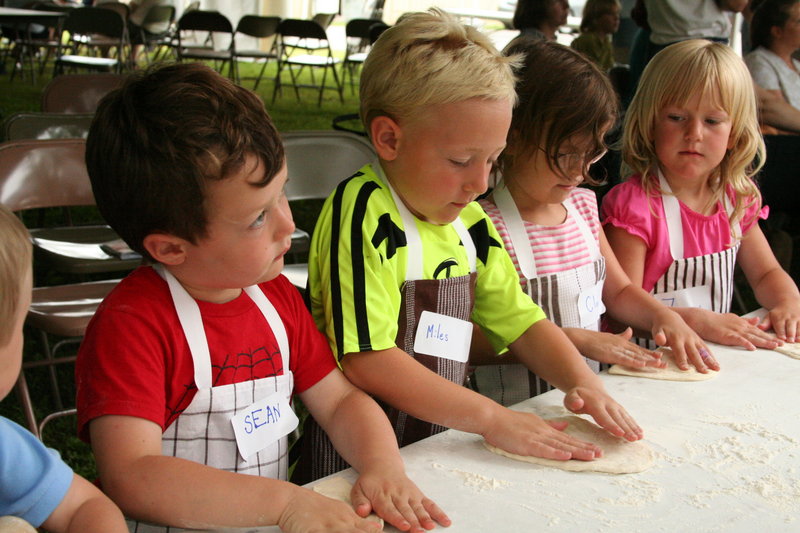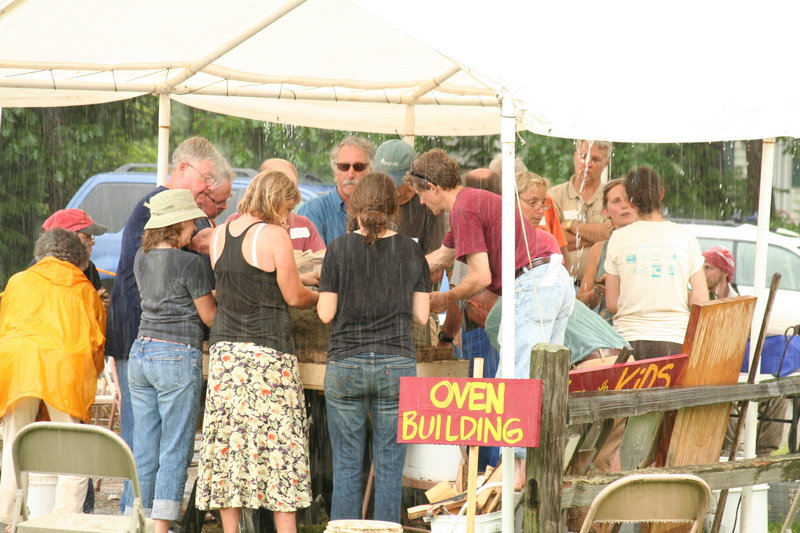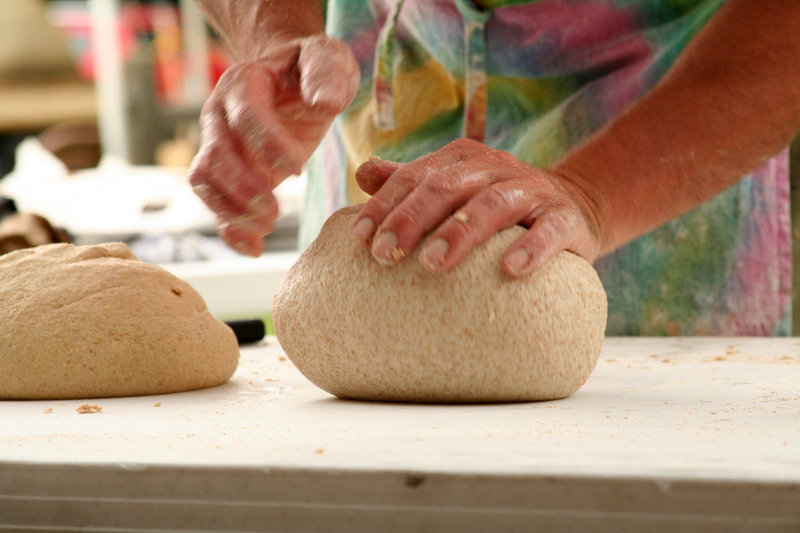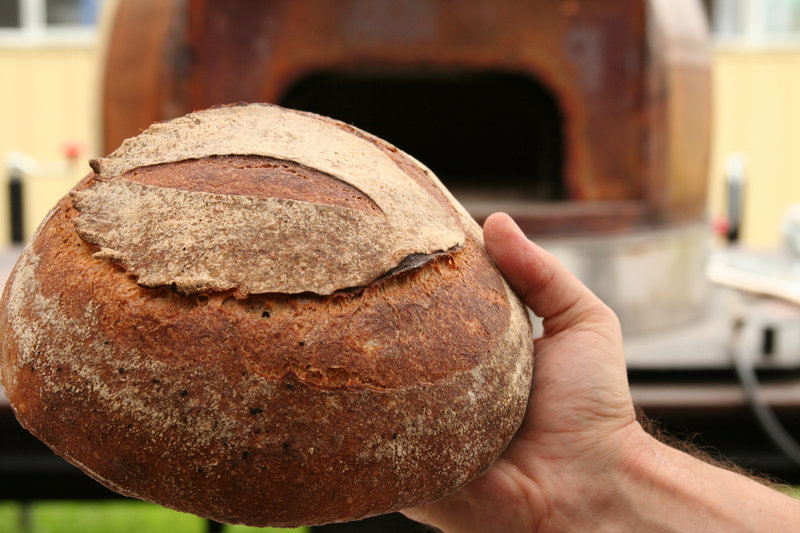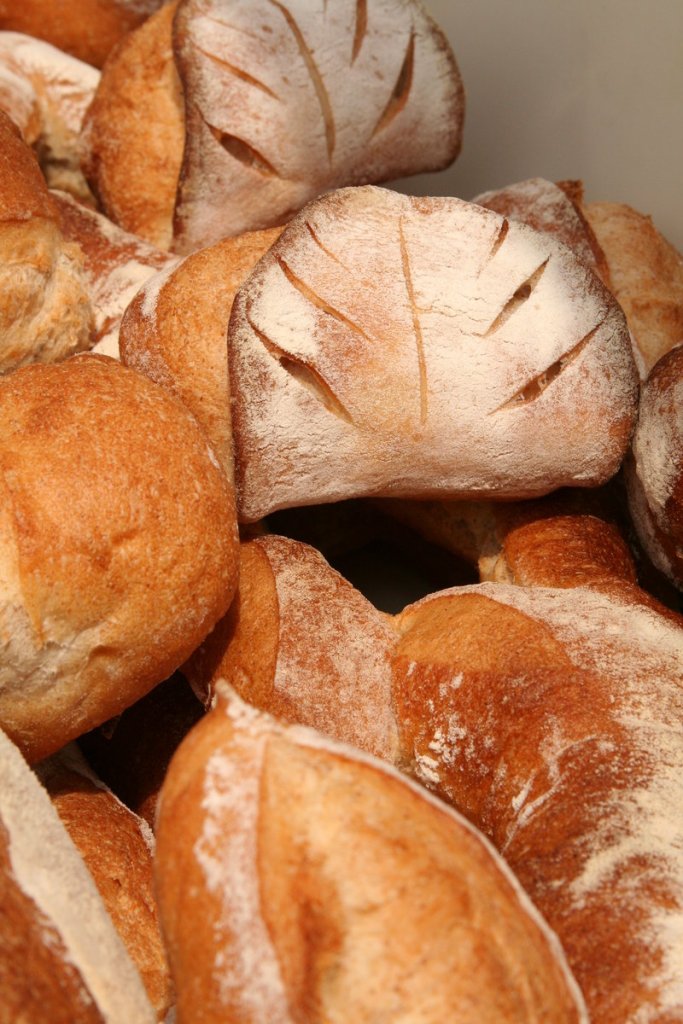It may seem early to be thinking about a conference that doesn’t happen until July.
But for this particular conference, it may be a good idea to plan ahead. If past years are any indication, bakers and bread-heads will be turning up in droves for the fourth annual Kneading Conference and Artisan Bread Fair in Skowhegan July 29-31.
The conference is an annual gathering of professional and home bakers, chefs, oven builders, millers, farmers experimenting with growing local grains, and people with an interest in sustainable agriculture and what it can do for rural economies.
“We wanted to approach bread making and wood-fired oven building and grain cultivation as something that not only strengthens the local economy and the local food supply, but it creates community,” said Wendy Hebb, coordinator of the event.
Yes, at $300, attending the conference is an investment. But you can subtract $50 from that if you sign up by June 15, and there are scholarships available for those who need them. And the Artisan Bread Fair that follows the conference is free.
the looks of the schedule this year, the registration fee may actually be quite a bargain. Where else can you learn to build your own bread oven, hear stories of French underground bakers, learn to make sourdough and flatbreads, get a lesson in how to cut and sharpen a grist stone, and rub elbows with some of the rock stars of the bread world?
Jeffrey Hamelman, baking director for King Arthur Flour and one of only 130 master bakers in America, will be a keynote speaker.
Jim Lahey of New York City’s Sullivan Street Bakery will show participants how to make his famous no-knead bread.
On the grain side, Fred Kirschenmann, president of the Stone Barns Center for Food and Agriculture in New York, will open the conference with his keynote address on sustainable agriculture.
Eli Rogosa of Heritage Wheat Conservancy, who collects almost-extinct grains in the Mideast and Europe, will give a workshop on wheat biodiversity and baking with gluten-safe einkorn and emmer, also known as farro.
Stephen Jones, a research scientist from Washington State University who is working on developing one of the holy grails of agriculture — perennial wheat — says the Kneading Conference is “an incredible event” that highlights a movement spreading across various parts of the country.
“With the commodification of our food supply, many regions have outsourced the growing of their grains,” Jones said. “However, folks want their wheat back. This is true in the upper Northeast, but it’s also true in the coastal Pacific Northwest. There are more bakers than wheat growers in these areas, but there won’t be for long as more and more small farmers see the value of adding grains back into their rotations.”
Barry Dana, former chief of the Penobscot Nation, will talk about how his ancestors used corn and describe his rediscovery of Abenaki Rose, the heritage corn of the Penobscots.
A GROWING EVENT
Word has been getting out about the conference — it grew by 25 percent last year — so this year it’s going to expand both in size and scope.
The conference has been moved to the Skowhegan Fairgrounds because there’s more room, but also because it is, Wendy Hebb notes, “the longest continuously running agricultural fairgrounds in America, and that seems like the perfect match for us.”
People who attend the conference range from food lovers who want to learn more about baking to professionals of every sort, said Hebb.
This year, for example, a couple from the Midwest who own a wood-fired oven are coming so they can find out what they can make with it besides great pizza.
“They may be very passionate home bakers, they may be professional bakers,” Hebb said. “They are farmers who are interested in adding or improving grain cultivation on their farms, but often they show up at the baking workshops because they’re interested in value-added products and what can they do to improve the revenue sources for their farms.”
The hands-on workshops are the heart of the conference, the place where folks learn how to bake boules and build bread ovens.
This year, there will be two wood-fired oven workshops — one for clay ovens and one for brick ovens.
“Some people come and they never leave the oven-building area,” Hebb said. “They really are excited. They take off their shoes and socks and they’re tamping down wet sand and clay, and then they’re molding it into an earth oven. It’s really, really fun.”
ABUNDANCE AT BREAD FAIR
If even the early bird registration is too rich for you, no worries: the Artisan Bread Fair that follows the conference on July 31 is free and packed with demonstrations, art, music, seed exchanges, baked goods and baking equipment.
Professional bakers will be on hand to sell you their breads, answer your questions and teach your children how to make pizza.
“We’ll have demonstrations of home mills, so if you’re interested in buying locally grown wheat or buckwheat or something like that, you can mill your own flour and make your own bread,” said Dusty Dowse, a biology professor at the University of Maine who is organizing the bread fair.
Last year, some vendors were reluctant to sign up for the fair because it was being held on the same day as the farmers’ market, Dowse said. Just 15 vendors came, and they were stunned when 600 to 700 people turned up to buy their pita, sourdough and scythes.
“All the foodies showed up,” Dowse said.
Word got around. This year, about 50 vendors have already requested space, and there may be more.
“This time around, we’re going to have plenty of picnic benches for people to eat their nan and their pitas and their curry or whatever they’re going to get,” Dowse said.
Staff Writer Meredith Goad can be contacted at 791-6332 or at: mgoad@pressherald.com
Send questions/comments to the editors.


